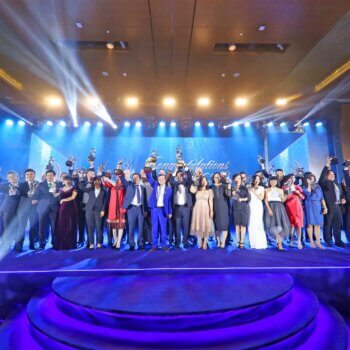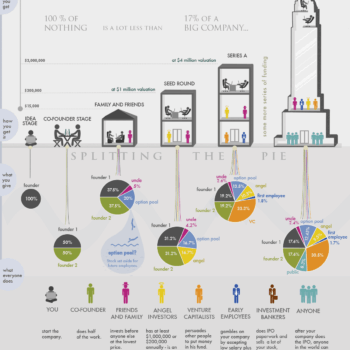“I have a dream.”
Those words echo from every human soul. Big or small, our dreams are launched with a swell of excitement, but it doesn’t take long to realize it’s not smooth sailing. When our GPS fails, we regret not checking Google Maps before taking off.
Indeed it helps to have a sense of direction. Often, we overlook the most obvious; we steer away from clichés because, well…they’re so cliché. But just because something is trite, it doesn’t mean it’s not true.
Whatever your dream is, here are 10 clichés that are worth remembering:
1. It’s not what you get, but who you become
Great words from Tony Robbins. In our hyper-materialistic world, success is gauged by wheels and white-picket fences. But the Mercedes will rust, and the house will need to be repainted; but the habits and characteristics you’ve cultivated on the way to earning those possessions, they’ll last a lifetime.
Rather than see personal development as a byproduct of success, see success as a byproduct of personal development. Einstein said, “Try not to become a person of success, but rather a person of value.” The latter will bring the former.
2. Quality will beat qualifications. Every time
You’ll question whether you’re qualified to do the work. Inevitably, you’ll run into someone with more degrees, more initials after their name, and you’ll put your tail between your legs.
But history is full of successful high-school and college dropouts: Anne Beiler of Auntie Anne’s Pretzels dropped out of high school; and of course, Richard Branson, who left school at 16. That being said, it’s not that they decided to cease education altogether—they just found other ways to educate themselves, and succeed.
At the end of the day, if your work absolutely rocks, nobody will care what piece of paper hangs on your wall. Do as Steve Martin said, “Be so good they can’t ignore you.”
3. If you want success, start failing
Failure and losing have the unique ability to uncover our blind spots. Significant improvement comes not from studying your strengths, but your weaknesses.
Thomas Edison said, “I have not failed. I’ve just found 10,000 ways that won’t work.”
It’s called iteration—refined progress toward a goal. It’s one thing to move forward, but another to do so with improvement. Failure is the drawing board for iteration.
4. You can’t please everyone
Even close friends and family won’t all be supportive of your dream. While it’s in our nature to love and be loved, to make friends, not enemies, striving to live up to someone else’s blueprint only creates bitterness.
Before David fought Goliath, he was told to put on King Saul’s armor. It was so uncomfortable he could barely walk. Only when he stripped the armor, and picked up his own sling, was he able to defeat Goliath. It’d be a different David & Goliath story had he taken King Saul’s advice.
There’s nothing wrong with seeking counsel and taking advice, but you have to filter the advice that propels you, from that which derails you. It’s wise to have an inner-circle of people you respect to speak into your life and act as a second filter, but ultimately, only you know deep-down what makes you happy. The sooner you realize you can’t please everyone, the better.
Bill Cosby said, “I don’t know the key to success, but the key to failure is trying to please everybody.”
5. Talent = 10,000 hours
The best athletes train even when they don’t feel like training. The best musicians play even when they don’t feel like playing. The best writers…you get the idea. While there’s much debate over Gladwell’s 10,000 hour rule, there’s convincing studies showing talent and success are cultivated rather than inherited.
Mastery and success isn’t arrived at on the back of good feelings, but pushing through the painful grind. Showing up and doing the work. Seth Godin says it best:
“The notion that I do my work here, now, like this, even when I do not feel like it, and especially when I do not feel like it, is very important. Because lots and lots of people are creative when they feel like it, but you are only going to become a professional if you do it when you don’t feel like it. And that emotional waiver is why this is your work and not your hobby.”
6. Just go with your gut
Or follow your heart. Fairytail-ish for sure, but solid advice nonetheless. We’ve all had “trusting your gut” experiences—something not quite right, and the right decision was unexplainably clear as day.
Daniel Kahnerman sheds light on our intuitive thought in his book Thinking, Fast and Slow; the effortless and automatic ‘knowing’ comes from our unconscious ability to process vast amounts of information. Because it happens beyond the scope of our conscious minds, we’re completely unaware of it, and so we label it a mysterious gut feeling.
There’s a lot that happens behind the scenes of our snap decisions—a method behind the madness; which makes it less mad, and quite trustworthy.
7. It’s not what you know, it’s who you know
Nobody leaves a campfire without smelling like smoke. Subconsciously, we can’t help but take in information from our environment. And, after much exposure, it manifests in our behavior.
Jim Rohn said, “You’re the average of the five people you spend most time with.”
We’re deeply impacted by the people we allow into our lives. That’s why “Mastermind” groups are so popular and effective among entrepreneurs.
It’s a good time to take inventory of the people closest to you. Are they lifting you up or bringing you down?
8. You gotta have a faith
Human imagination continues to baffle scientists. In a study comparing pianists, those who imagined playing a melody performed almost identically to those who physically practiced. Elite athletes visualize a completed action before attempting it physically. Your imagination—creating a vision, blurs the lines of reality.
Writing down goals and dreams involves the imagination, and likewise with profound effects. Dr. Gail Matthews’ took 267 participants and found that those who wrote down their goals with weekly check-points had a 76% success rate compared with 43% who only stated their goals.
Practically living out your dreams is fueled through “impractically” dreaming out your dream. Write down and visualize goals often. Clear, and detailed—seeing yourself celebrating at the finish line.
9. Ain’t no valley low enough
Your dream won’t be presented on a silver platter. Every successful person bears scratches and scars.
J.K. Rowling, chased her dream from the age of 5. But before Harry Potter took over the world, Rowling spent years deep in the valley. Losing her mother, a failed marriage, whilst raising a daughter, Rowling reflects, “I was as poor as you can get without being homeless.”
Of course, depression and turmoil aren’t prerequisites for success—but sacrificing your comfort zone is. And by definition, that’s not a pleasurable experience. Think of Rowling’s words when you feel down and out, “Rock bottom became the solid foundation on which I rebuilt my life.”
10. Don’t just make a dollar, make a difference
Inspirational men and women have a vision deeper than their pockets.
Let’s be real—money is important. It’s a powerful resource that can bring great change. And when ambition turns into success, wealth is sure to follow. But money can make or break you. Much like the ring Frodo carries, money has an all-consuming power. And if the scope of your dreams cannot see beyond dollars, your fulfillment will be as short-sighted.
Just take a look at the tragic ending for most lottery winners. Money without meaning is worthless. Create a grand vision for your success that extends beyond your own pockets, and your own life.





























